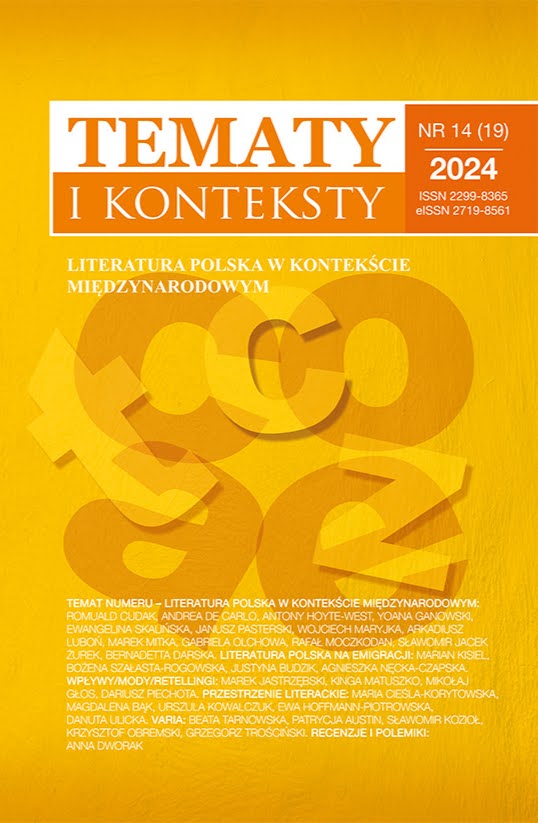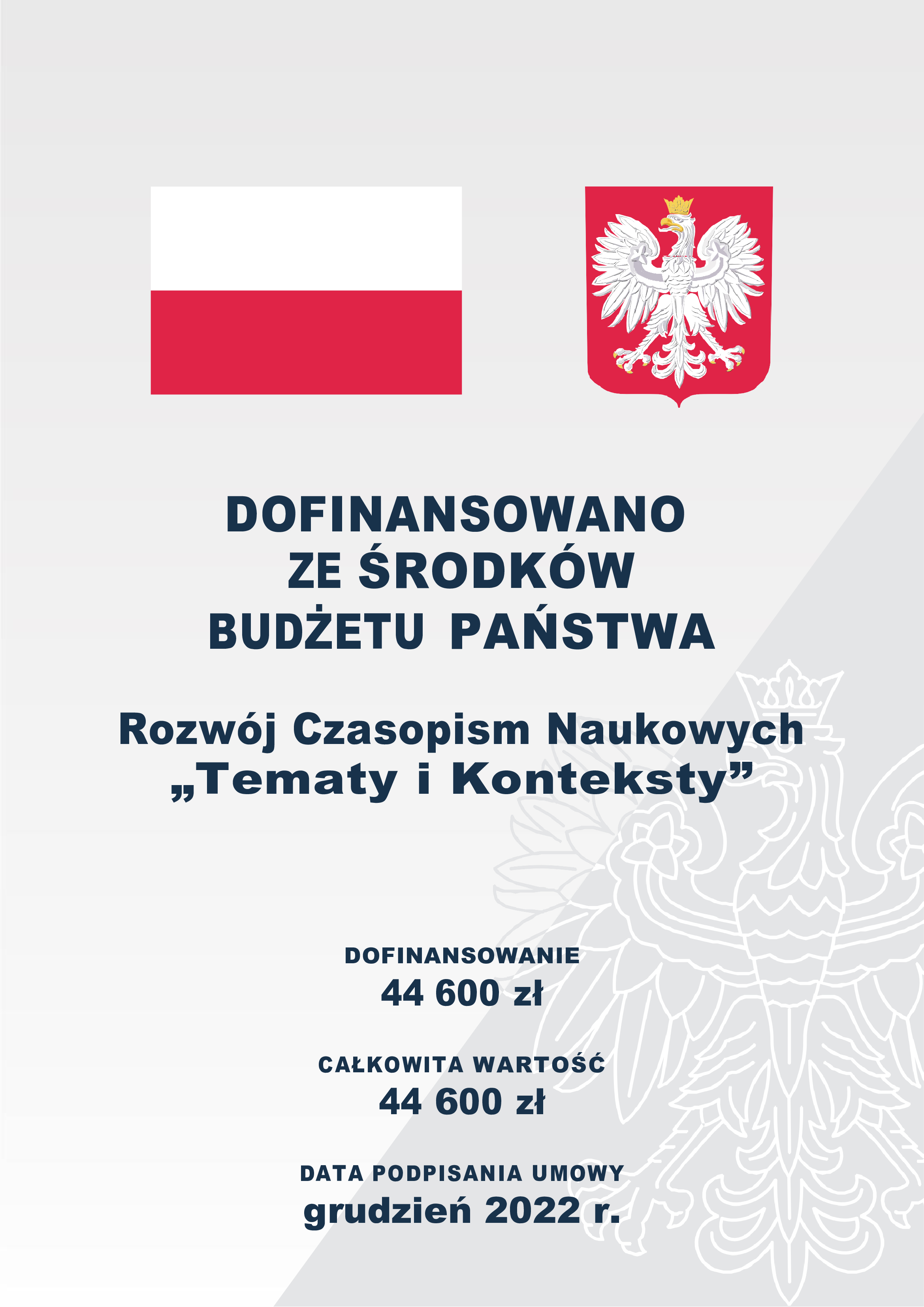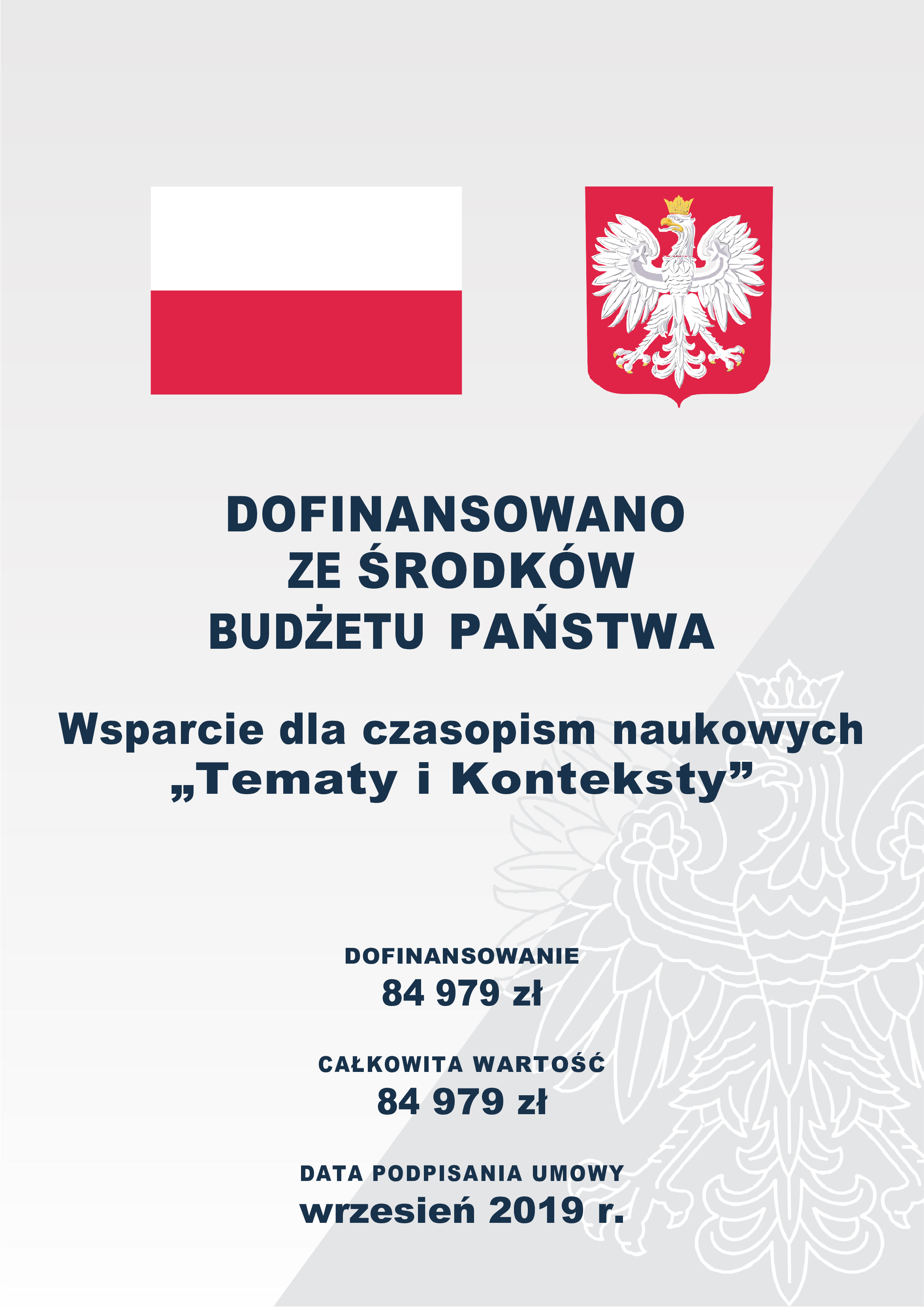Whose land is it, really? And whose story? Hosting human and non-human refugees in Amitav Ghosh’s "Gun Island"
DOI:
https://doi.org/10.15584/tik.2024.28Keywords:
hospitality, non-human, refugees, Amitav Ghosh, Gun Island, mythos, logosAbstract
The word hospitality includes the sense of hostility and a reciprocal exchange among equals. The accelerating human and non-human migrations caused by climate change call for a reclaiming of that complexity. Historically, the stranger, the barbarian, was the one deprived of the logos, the one not operating the language of the political centre. If, however, following Merleau-Ponty, the logos becomes the property of the living world, then it is not the human who can offer hospitality to other human and nonhuman strangers, but they all become guests in the living world with varying degrees of agency. Amitav Ghosh’s Gun Island explores the complexity of the notion of the host and the barbarian, questioning the Western belief in the primacy of human logos. It is shown both in the plot line and in the form of the novel which re-enacts the interplay between two modes: logos and mythos.
Downloads
References
Benveniste, Émile. Dictionary of Indo-European Concepts and Society. Chicago: HAU Books, 2016.
Anidjar, Gil (ed.). Jacques Derrida: Acts of Religion. New York and London: Routledge, 2002.
Derrida, Jacques and Anne Doufarmantelle. Of Hospitality. Anne Dufourmantelle Invites Jacques Derrida to Respond, translated by Rachel Bowlby. Palo Alto: Stanford University Press, 2000.
Ghosh, Amitav. Gun Island. London: John Murray, 2019.
Ghosh, Amitav. The Great Derangement. Climate Change and the Unthinkable. Penguin Random House. Gurgaon: India, 2016. DOI: https://doi.org/10.7208/chicago/9780226323176.001.0001
Marková, Ivana. The Dialogical Mind: Common Sense and Ethics, Cambridge: Cambridge University Press, 2016. DOI: https://doi.org/10.1017/CBO9780511753602
Merleau-Ponty. Phenomenology of Perception. Trans. Donald A. Landes. London and New York: Routledge, 2012. DOI: https://doi.org/10.4324/9780203720714
Nail, Thomas. The Figure of the Migrant. Stanford: Stanford University Press, 2015.
Paulson, S. (2019). Making Kin: An Interview with Donna Haraway. Los Angeles Review of Books. December 6. 2019 lareviewof books.org/article/making-kin-an-interview-with-donna-haraway/.
Still, J. Derrida and Hospitality. Theory and Practice. Edinburgh: Edinburgh University Press. 2010 DOI: https://doi.org/10.1515/9780748644506
Vince, G. “The century of climate migration: why we need to plan for the great upheaval.” The Guardian. 18.08.2022. www.theguardian.com/news/2022/aug/18/century- climate-crisis-migration-why-we-need-plan-great-upheaval
Westling, L. (2014). The Logos of the Living World. Merleau-Ponty, Animals, and Language. New York: Fordham University Press. DOI: https://doi.org/10.5422/fordham/9780823255658.001.0001
Samkaria, Ashwarya. “Postcolonial Nonhuman Blurring (B)orders in Migrant Ecologies: A Postanthropocentric Reading of Amitav Ghosh’s Gun Island”. ecozon@ 2022. Vol. 13, No 2. DOI: https://doi.org/10.37536/ECOZONA.2022.13.2.4671
“About UNHCR. The 1951 Refugee Convention”. www.unhcr.org/uk/about-unhcr/who-we-are/1951-refugee-convention.
European Parliament Briefing. “The concept of ‘climate refugee’ Towards a possible definition”. www.europarl.europa.eu/RegData/etudes/BRIE/2021/698753/EPRS_BRI(2021)698753_EN.pdf
“Migration” United Nations. www.un.org/en/globalissues/migration#:~:text=Today%2C%20more%20people%20than%20ever,two%20thirds%20were%20labour%20migrants.
“Refugee definition” emergency.unhcr.org/protection/legal-framework/refugee-definition#:~:text=%22owing%20to%20well%2Dfounded%20fear,or%20who%2C%20not%20having%20a
Downloads
Published
How to Cite
Issue
Section
Categories
License
Copyright (c) 2024 Tematy i Konteksty

This work is licensed under a Creative Commons Attribution-NonCommercial-NoDerivatives 4.0 International License.




